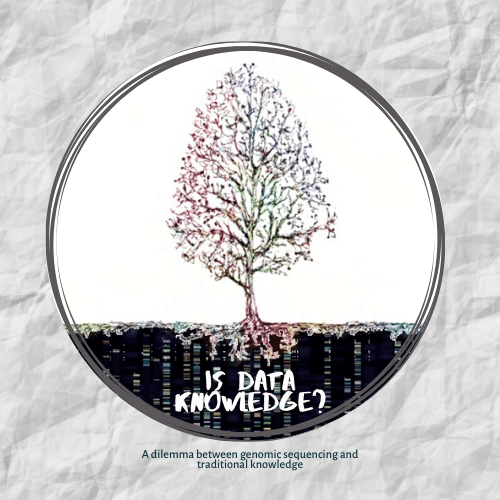The challenging dilemma between genomic sequencing and traditional knowledge
Historically, to develop a new plant variety, there needed to be two distinct varieties to be able to cross-pollinate. If one variety was higher yielding and the other had strong disease resistance, they could be crossed with the goal of being a higher-yielding, improved disease resistance variety. One common aspect of both public and private plant breeding programs that have allowed for access to elite variety development has been the international transfer of plant materials, most commonly germplasm. Germplasm is commonly the tissues of plant or seeds, and their exchange has enabled breeders to have access to the most advanced varieties from other countries in an effort to improve local varieties. Depending on the crop variety, accessing germplasm meant obtaining approval from the local traditional culture, as traditional knowledge about the production characteristics belonged to these local cultures. All of this has changed over the past decade.
Cracking the genome code of plants
As the genomes of various plants have been sequenced, these genetic sequences of data have been posted on secure Internet websites. The hope is with current computing power, these online data resources can help the search for specific genes, or traits, of interest to improve breeding selection. Such selective breeding can be more easily achieved thanks to new plant breeding techniques, known as gene editing. Through gene editing tools, a plant’s genome can be edited to duplicate the online gene of interest. The resulting new variety requires no physical access to existing varieties. While this is a rough and oversimplified explanation, the advancements from genome sequencing and digital genome sequence databases have provided great advantages to plant breeders.
But not everything is coming up roses
Plant breeding is a costly process that can generate big revenues, which leads to the question of who owns genetic data and the rights to that data or genomic sequence? When genetic data turns out to be of value, which has been identified through an algorithm that searches an online genetic resource for genes of interest, the dilemma that arises is whether there is a legitimate claim for traditional knowledge. For instance, the traditional knowledge of potatoes held by Andean countries has been an important part of potato variety development, but who has ownership of this knowledge?
In situations where a plant breeder can access an online genetic database to identify a gene of interest and recreates this gene in a local plant variety, the dilemma that results is whether there is a link to traditional knowledge. Who is to say? Well, the law typically, but this can become murky, as industrial countries with clearly defined intellectual property (IP) laws have one view, while biodiverse rich countries with communal property systems have another. Biodiverse rich countries argue that any use of genetic material has traditional knowledge attached to it, while countries with structured IP systems maintain that online genetic databases are simply a collection of data, with no linkage to traditional knowledge.
There are currently no mechanisms in place that would facilitate any degree of fiscal benefit sharing with the culture or geographical region where the plant source originated from. Biodiverse rich parts of the planet are advocating for mandatory payment by researchers prior to accessing existing online databases. The potential concern about this is that the cost to access such data may be too high for some public breeding institutions in developing parts of the world. This would constitute a barrier to innovation in plant breeding, which could set back access to much-needed innovations around the globe. In a time when the impacts of climate change become more uncertain, there could be solutions through access to plant genomics that could be held up due to the politics of cost and ownership.
The global dilemma between genome data and plants
In a new article published in the Journal of World Intellectual Property, my co-authors and I have expanded upon the global implications of this dilemma. While international discussions have been held over the past decade, very little progress has been made and a resolution doesn’t appear to be close. We are living is a unique time of information and barriers, of which we must figure out how to navigate to succeed. The most significant barrier to resolving the dilemma is the consensus-style decision making governance process of international institutions and treaties. Without a change in governance decision making, a solution is most unlikely in the coming decade.
For more information on the scientific and technical aspects of digital sequence information, see Diego Macall’s blog “Understanding the Implications of Plant Digital Sequence Information” from May 28, 2019.


